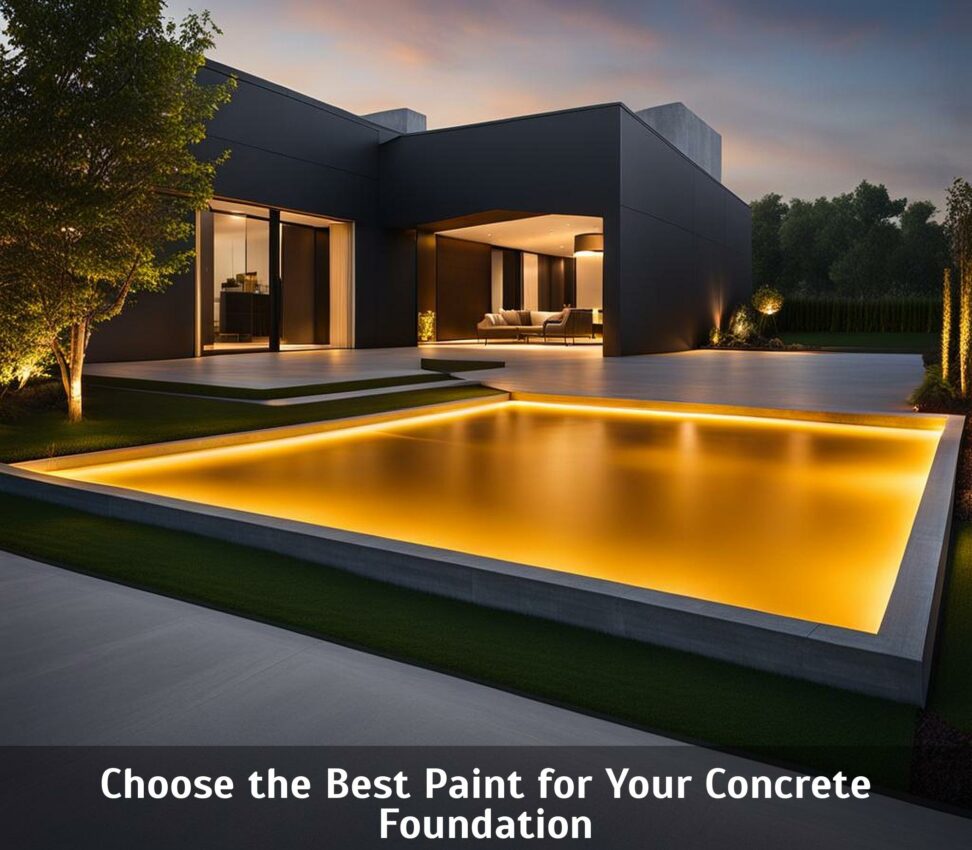Choose the Best Paint for Your Concrete Foundation
Enhancing your home's curb appeal often starts from the ground up. By applying a fresh coat of decorative, protective paint to your concrete foundation, you can transform the entire look of your house's exterior. However, with so many foundation paint options to pick from, it can be tricky to select the right product for your specific needs and climate.
Determine the Purpose of Painting
First, think about why you want to paint your foundation. This will help narrow down what type of paint is most suitable.
Enhance Curb Appeal
If your main goal is to improve the aesthetic appeal of your home's exterior, you'll want to choose paint colors and finishes that coordinate well with the rest of your house. Consider complementary or contrasting shades that align with your color scheme. You can also decide whether a glossy or matte finish better fits your desired look.
Protect From Moisture and Damage
Alternatively, you may want to paint your concrete foundation mainly to protect it from moisture, cracks, mildew, and other damage over time. In this case, proper sealing and adhesion are more important factors than color or finish.

Evaluate Your Climate and Environment
Where you live plays a key role in determining which types of concrete foundation paint perform best. The amount of moisture, sunlight, and temperature fluctuations your foundation is exposed to will impact its coating needs.
Humidity and Rainfall
If you reside in a humid climate or area with frequent rainfall, moisture resistance should be a top priority. Look for water-based foundation paints and epoxy or urethane coatings to provide a protective barrier against dampness.
Sun and Temperature Exposure
Meanwhile, concrete foundations in hot, sunny environments are prone to fading, cracking, and peeling over time. Seek out paints offering UV-resistance, reflectivity to reduce heat absorption, and expandable properties to prevent cracks as temperatures shift.
Compare Main Foundation Paint Types
Now that you know your goals and environment, explore characteristics of popular concrete foundation paint options to discover the best choice.
Epoxy Paint
Epoxy paint offers extremely high durability and resistance to moisture, chemicals, and abrasions. It leaves a smooth, professional-looking glossy finish and comes in many colors. However, epoxy is more tedious to prepare for and apply than other paints and costs more upfront. But it will last for many years with proper application.
Masonry Paint
Specially engineered for concrete, stucco, brick, and stone, masonry paint provides excellent adhesion, alkali and moisture resistance, and color retention. It soaks into porous concrete to bind well to the surface. Masonry paint is very durable, affordable, and fast-drying, making it another top choice for foundations.
Acrylic Latex Paint
For those seeking a budget-friendly option, high quality acrylic latex paint works well for concrete when adequately prepped and primed first. Although it doesn't offer the longevity of epoxy or penetrating strength of masonry paint, acrylic provides decent protection and coverage at a lower cost.
Proper Surface Preparation
Before applying any foundation paint, take time to properly clean and seal the concrete to ensure optimal adhesion. This will allow the paint to last longer with greater crack, peel and fade resistance.
Cleaning and Repairing
Pressure wash your foundation thoroughly to remove any dirt, oil, loose paint or other contaminants. Scrape off peeling previous coatings. Fill any cracks or holes with patching compound, let dry, then sand smooth. Finally, etch bare concrete with an acidic solution to open pores so paint can grip the surface.
Priming
After preparing your foundation, apply 1-2 coats of high-quality primer made specifically for concrete and masonry. Primer enhances paint bonding, provides an extra moisture barrier, and helps conceal imperfections for a more uniform finished look.
Application Process
Use proper techniques when applying your concrete foundation paint to achieve a durable, flawless finish that maintains its aesthetic appeal and protective qualities over time.
Equipment
Use high-quality brushes for cutting in edges and paint rollers with thicker nap for quicker coverage across broad foundation surfaces. Buy rollers with removable cores for easier cleanup.
Allow proper drying time between coats as specified on the paint's instructions. Darker colors usually require an extra coat or two to avoid transparency. Apply paint only when temps are in manufacture's recommended range.
By selecting the right concrete foundation paint for your climate and goals, properly preparing your surface, and using good application practices, you can achieve lasting, professional-looking results that enhance your home's exterior.